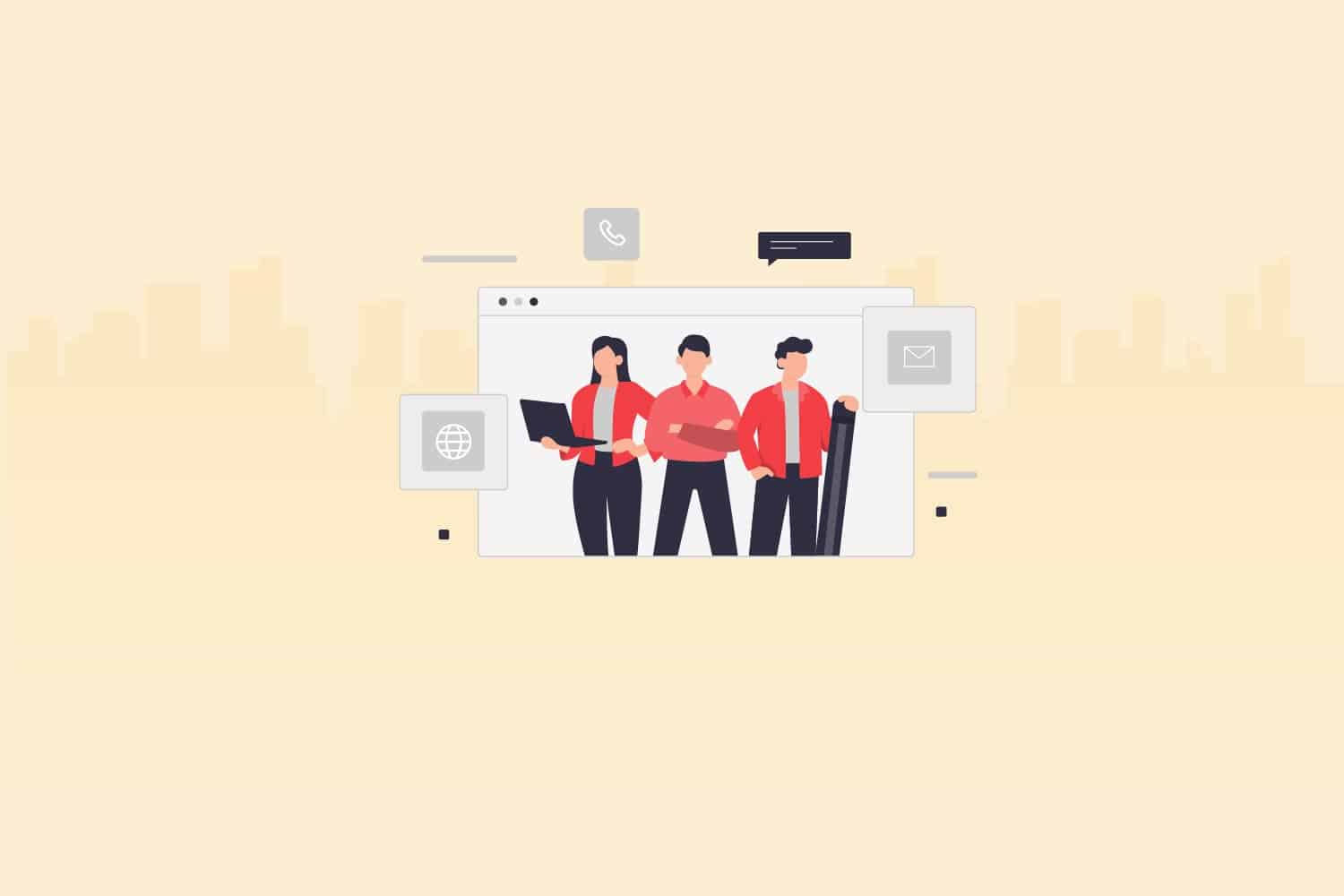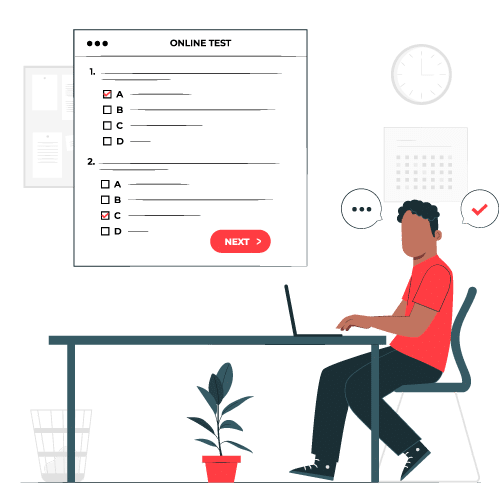In the ever-evolving landscape of technology and innovation, finding the right talent for your organization is an art that extends far beyond reviewing resumes and conducting standard interviews. As recruiters, founders, and hiring managers, you understand the pivotal role that technical assessments such as JavaScript developer test, html developer test, software developer test and other tests play in identifying candidates with the skills and capabilities necessary for your team’s success.
According to World Economic Forum, the world will need to reskill more than 1 billion people by 2030 because of technology-led changes in the workplace.
This blog is designed to serve as your guiding compass in helping candidates navigate the challenging waters of technical assessments. We’ll provide you with five valuable pointers that not only empower your candidates but also streamline your hiring process. Whether you’re recruiting for a startup, a well-established company, or an ambitious project, our insights will ensure that your candidates are well-prepared to shine in technical assessments, making your selection process more efficient and effective.
Understand the role of technical assessments
Before embarking on the journey of building a candidate-centric technical assessment process, it’s paramount to develop a profound understanding of the specific role for which you are hiring and the nuances of the assessment process. Each technical position comes with its unique set of requirements and skill expectations. Whether you’re scouting for a software developer, a data scientist, or a systems architect, the technical skills and competencies needed can differ significantly.
To start, dive into the job description and examine the key responsibilities and technical proficiencies required for the role. Reach out to the hiring team, including the future team members and technical leads, to gain insights into the day-to-day tasks and the challenges the new hire is expected to tackle. By creating a comprehensive profile of the ideal candidate, you can tailor your guidance to ensure candidates are equipped with the role specific skills and knowledge needed to excel in the role.
Understanding the assessment itself is equally vital. Technical assessments can vary widely in format, from coding challenges and whiteboard sessions to take-home assignments and system design questions. You should be well-versed in the assessment’s structure, its duration, and whether it involves particular tools, languages, or frameworks. Knowing these specifics enables you to provide clear and relevant guidance to candidates, ensuring they are well-prepared for the assessment’s rigors.
In essence, this first pointer sets the stage for an effective and targeted approach to building a technical assessment process. It’s the foundational step that ensures that both your candidates and your hiring process are aligned with the role’s unique demands, ultimately leading to more successful placements and satisfied hiring teams. In the following sections, we’ll delve deeper into how to leverage this understanding to guide your candidates toward success.
Provide clear expectations about the technical assessment
Transparency is the cornerstone of a successful candidate preparation strategy for technical assessments. When candidates are left in the dark about what to expect, anxiety and uncertainty can hamper their performance. It’s the responsibility of recruiters, founders, and hiring managers to provide crystal-clear expectations regarding the technical assessment process.
Start by detailing the format of the assessment. Is it a timed coding challenge, a take-home assignment, or an in-person interview? Candidates should be aware of the logistics, including the assessment’s duration, where it will be conducted, and whether they need to bring their laptops or utilize specific platforms or tools. This level of clarity enables candidates to mentally prepare and gather any necessary resources in advance.
Equally important is conveying the scope of the assessment. Candidates need to know what topics or areas will be covered. Will it focus on data structures and algorithms, system design, or a combination of both? Sharing this information empowers candidates to direct their preparation efforts more effectively. For instance, if the assessment heavily emphasizes algorithms, candidates can allocate more time to sharpen their problem-solving skills in that domain.
Moreover, make sure candidates are aware of any specific languages, libraries, or frameworks they’ll be expected to use. This way, they can brush up on their proficiency in those tools, ensuring they are ready to tackle the assessment without technical hiccups.
In essence, providing clear expectations not only alleviates the apprehension that candidates may experience but also sets the stage for a fair and productive assessment process. When candidates know what they are up against, they can channel their energies into honing the right skills, ultimately increasing their chances of success. In the subsequent sections, we’ll delve into how to further support candidates as they prepare for these assessments.
Offer practice resources before technical assessments
One of the most effective ways to prepare candidates for technical assessments is to provide them with access to relevant practice resources. Just like athletes train rigorously before a competition, candidates need to hone their technical skills and problem-solving abilities. Here’s how you can help them in this crucial phase of preparation.
Start by sharing sample questions and problems that are similar in complexity to what they might encounter in the actual assessment. These questions can serve as a valuable benchmark, helping candidates understand the level of difficulty they should be ready to tackle. Encourage them to work through these exercises, offering them a platform to test their knowledge and skills.
Recommend coding platforms and online resources that candidates can use to practice and refine their technical abilities. Websites like LeetCode, HackerRank, or CodeSignal offer a wide array of coding challenges and problems categorized by difficulty. These platforms often provide detailed explanations and solutions, helping candidates learn and improve. Additionally, suggest online courses, tutorials, or textbooks that align with the specific skills and concepts relevant to the role.
Consider organizing mock assessment sessions for candidates. These simulations closely resemble the actual assessment and offer a chance for candidates to experience the pressure and time constraints they’ll face. It’s an excellent opportunity to provide feedback, identify areas where candidates might be struggling, and guide them on how to approach such challenges more effectively.
By offering these practice resources, you empower candidates to actively engage with the material, build their confidence, and refine their skills. This approach not only prepares candidates for success in the technical assessment but also demonstrates your commitment to candidate’s growth and development. In the subsequent sections, we’ll explore additional ways to guide candidates as they prepare for the real test.
Mock interviews and feedback for technical assessments
One of the most effective ways to prepare candidates for technical assessments is to offer them the opportunity to engage in mock interviews and receive constructive feedback. This step goes beyond providing resources and actively simulates the assessment experience, helping candidates refine their skills and build confidence.
Conducting mock technical interviews or assessments can be a game-changer in candidate preparation. This exercise not only helps candidates become familiar with the assessment format but also allows them to practice articulating their thought processes, which is often a critical aspect of technical interviews. You can take on the role of the interviewer or involve members of your team, ideally those who have experience in the technical domain relevant to the role.
During the mock interview, assess the candidate’s problem-solving skills, technical knowledge, and ability to communicate their approach clearly. Encourage them to think out loud, as this is a valuable skill in technical interviews. After the interview, provide constructive feedback, emphasizing both strengths and areas that need improvement. Highlight how candidates can enhance their problem-solving techniques, code readability, or system design skills.
Constructive feedback is invaluable for candidates. It allows them to understand their weaknesses and work on them, ultimately increasing their chances of success in the real assessment. Additionally, it gives them a chance to ask questions and clarify any doubts they might have, further enriching their preparation process.
By offering mock interviews and feedback, you not only boost candidates’ confidence but also refine their technical skills, ensuring they are well-prepared for the actual assessment. In the subsequent sections, we’ll explore the significance of soft skills and stress management in candidate preparation.
Soft skills and stress management for technical assessments
While technical competence is a vital aspect of building a technical assessment process, don’t overlook the significance of soft skills and stress management. Technical assessments can be nerve-wracking, and a candidate’s ability to maintain composure and effectively communicate their thought process can be as critical as their technical knowledge.
Candidates should be aware that technical interviews are not just about solving problems; they also evaluate how well candidates work under pressure, collaborate with interviewers, and express their ideas clearly. It’s essential to emphasize the importance of effective communication during the assessment. Encourage candidates to explain their thought process, ask questions for clarification when needed, and seek feedback as they work through problems.
Stress management is another key factor. The pressure of a programming test or a software operating knowledge test can affect a candidate’s performance. Teach candidates techniques to stay calm and focused during the assessment. Breathing exercises, time management strategies, and positive visualization can all be helpful tools to manage stress.
Moreover, emphasize the significance of teamwork and collaboration. Many technical roles require candidates to work closely with colleagues, so assessors often look for evidence of strong teamwork and communication skills. Encourage candidates to highlight their ability to work effectively in a team, and share anecdotes from their past experiences that illustrate their collaborative nature.
Incorporating these soft skills and stress management aspects into candidate preparation not only improves their performance during the assessment but also equips them with essential skills for their potential future roles. By nurturing both technical and interpersonal skills, you help candidates become well-rounded professionals who can thrive in your organization. In the upcoming sections, we’ll wrap up our discussion, providing a holistic approach to building a technical assessments process.
Conclusion
In the dynamic world of recruitment, building a technical assessment process is a journey that involves more than just technical knowledge. It’s a process that demands a comprehensive understanding of the role, transparency in expectations, access to practice resources, mock interviews, and the development of essential soft skills. As recruiters, founders, and hiring managers, your guidance and support play a pivotal role in shaping candidates into well-prepared, confident, and capable individuals ready to excel in their technical assessments.
So, as you navigate the ever-evolving world of recruitment, remember that building a technical assessment process is not just about finding the right skill set; it’s about nurturing talent and potential. By following these pointers, you contribute to the success of candidates and, ultimately, the growth and success of your organization.
Ready to revolutionize your candidate assessments? Sign up for free on Testlify today and see how our powerful online tool can help you hire better-qualified candidates. Schedule a 30-minute demo call with us to get started on the path to smarter, more efficient recruitment.








